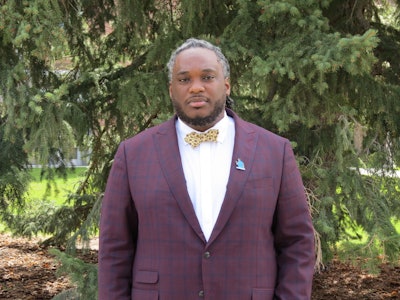Higher Education is on fire and too many people are too comfortable being warmed by its embers to douse the flames. We have the Great Resignation and the Great Retirement happening at the same time. Higher education tuition cost is at an all-time high and the exploitation of adjunct faculty only seems to increase. While we haven’t experienced the total devastation predicted by some higher education scholars that MOOCs and other disruptive innovations were supposed to create, the twin pandemics of COVID-19 and racism in the last couple of years gives oxygen for the fire to continue to burn.
While some issues impact all higher education; other challenges are becoming more acute in Republican controlled states where tenure is under attack, intimidation tactics are used to coerce faculty to not include Critical Race Theory in their instruction, and student evaluations of teaching are used improperly as a customer service tool to determine the ultimate quality of instruction. It is within that context that we teach and prepare the next generation of higher education professionals. Dr. Sydney Freeman, Jr.
Dr. Sydney Freeman, Jr.
During a similar time of unrest like we find ourselves in today, in 1967 Dr. Martin Luther King said these words:
"Until we commit ourselves to ensuring that the underclass is given justice and opportunity, we will continue to perpetuate the anger and violence that tears the soul of this nation. I fear I am integrating my people into a burning house."
The profundity of this statement rings true today. Not just because it addresses the character of the nation, but because it also aligns with the charred remains of the house that many faculty, staff, and administrators of color at Predominantly White Institutions (PWIs) call their employers. While PWIs similar to k-12 institutions have integrated, we continue to see them refuse to douse the flames of anti-Black racism and bigotry that pervades many campuses. While there are hundreds of studies that address the inhospitable campus climates for people of color at PWIs requests for systemic change continue to be ignored.
Higher Education institutions love to engage in what Drs. Brandon Wolfe and Paulette Dilworth call the diversity “Three Fs” of food, festivals, and famous people. But very few have demonstrated a commitment to what they describe as the Three Es” of education, engagement, and empowerment. Dr. King was calling for justice and opportunity that would ultimately lead to the liberation and sovereignty of all people.
We continue to witness and experience PWIs say that they support diversity, equity and inclusion, but very few address the structural and institutional policies and practices that systematically disadvantage people of color, particularly Black and Latinx populations on campus. It has been my experience that many white faculty and leaders are more concerned about the “whitelash” of other white people than supporting and fighting for what is morally and ethically right: decentering the privileged and doing the work to center the needs of those most marginalized.
Because of these concerns, I’m scared that I have mentored Black people into a burning integrated house of PWIs that often only values them if they are exploiting them through high revenue generating sports or landing large multi-million-dollar grants. As Bianca C. Williams, Dian D. Squire, and Frank A. Tuitt’s scholarship suggest, the charred residue of Southern Plantation politics still exist on these campuses. Is now the time to rethink our complicity in supporting a system that was never designed for marginalized? As someone who has committed as his vocation the development of leaders and faculty at higher education institutions, I have been challenged to think about steps to redemption for PWIs.
· If there is to be a change, we must have white administrators and faculty lead in dousing the flames of polite white supremacy. These individuals must acknowledge, eliminate, and correct issues such as the lack of recruitment of faculty of color, promotion of academic administrators of color, and investment in students of color.
· Once the fire is eliminated, there must be preservation of parts of the house and items that can be saved, such as research informed decision making that incorporates social and racial justice approaches. And strategies that have been proven to lead to equitable outcomes for all.
· And then lastly, there must be a rebuilding and/or renovating of the house, centering the most marginalized. Assessing all policies and practices to ensure equity and justice is at the center of its mission and values.
Dr. Sydney Freeman Jr. is a tenured professor of adult, organizational learning, and leadership at the University of Idaho. His research interests include the college and university presidency, faculty development, faculty careers, and higher education as a field of study.
![Freeman Headshot[381198]](https://img.diverseeducation.com/files/base/diverse/all/image/2023/09/Freeman_Headshot_381198_.650dd4069d686.png?auto=format%2Ccompress&crop=faces&fit=crop&h=48&q=70&rect=185%2C0%2C799%2C1420&w=48)















